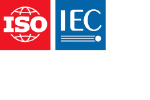Тезис
ISO/IEC 18047-2:2012 defines test methods for determining the conformance of radio frequency identification (RFID) devices (tags and interrogators) for item management with the specifications given in ISO/IEC 18000-2, but does not apply to the testing of conformity with regulatory or similar requirements.
The test methods require only that the mandatory functions, and any optional functions which are implemented, be verified. This may, in appropriate circumstances, be supplemented by further, application-specific functionality criteria that are not available in the general case.
The interrogator and tag conformance parameters in ISO/IEC 18047-2:2012 are the following:
- mode-specific conformance parameters including nominal values and tolerances;
- parameters that apply directly affecting system functionality and inter-operability.
The following are not included in ISO/IEC 18047-2:2012:
- parameters that are already included in regulatory test requirements;
- high-level data encoding conformance test parameters (these are specified in ISO/IEC 15962).
Unless otherwise specified, the tests in ISO/IEC 18047-2:2012 are to be applied exclusively to RFID tags and interrogators defined in ISO/IEC 18000-2.
Общая информация
-
Текущий статус: ОпубликованоДата публикации: 2012-01Этап: Подтверждение действия международного стандарта [90.93]
-
Версия: 1
-
Технический комитет :ISO/IEC JTC 1/SC 31ICS :35.040.50
- RSS обновления
Жизненный цикл
-
Ранее
ОтозваноISO/IEC TR 18047-2:2006
ОтозваноISO/IEC TR 18047-2:2006/Cor 1:2010
-
Сейчас
ОпубликованоISO/IEC 18047-2:2012
Стандарт, который пересматривается каждые 5 лет
Этап: 90.93 (Подтверждено)-
00
Предварительная стадия
-
10
Стадия, связанная с внесением предложения
-
20
Подготовительная стадия
-
30
Стадия, связанная с подготовкой проекта комитета
-
40
Стадия, связанная с рассмотрением проекта международного стандарта
-
50
Стадия, на которой осуществляется принятие стандарта
-
60
Стадия, на которой осуществляется публикация
-
90
Стадия пересмотра
-
95
Стадия, на которой осуществляется отмена стандарта
-
00


